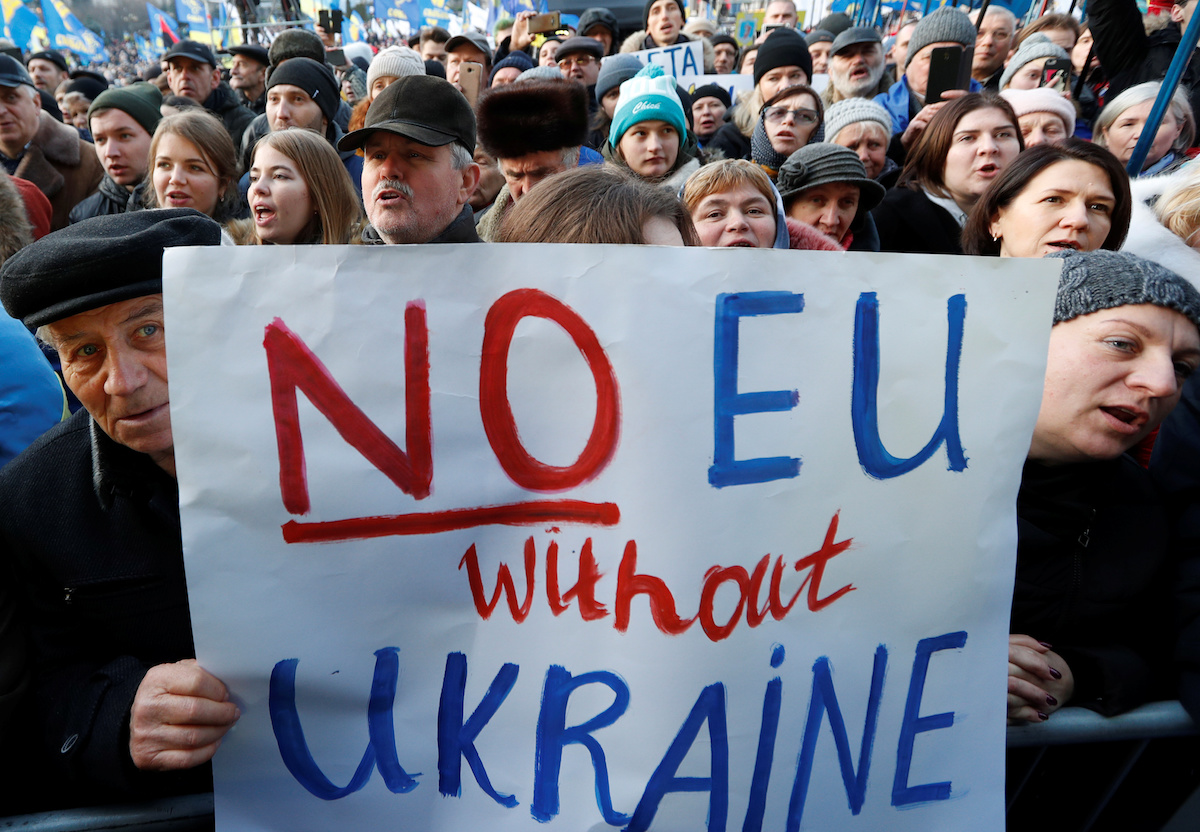Russia, Ukraine put an end to ‘gas war’ for now as questions remain
Ukraine and Russia have agreed to continue the transit of Russian gas to Europe through the gas transmission system of Ukraine.
This issue was difficult and painful for the two countries that have been involved in an open military conflict since 2014, and for a while it seemed impossible to reach an agreement, but on December 20, an agreement was nevertheless signed.
Experts in Ukraine believe that by signing the agreement, Kyiv has prevented the possibility of economic blackmail from Moscow.
__________________________________________________________________________
• Ukraine and Russia: enemies at war or trade partners?
__________________________________________________________________________
What does Ukraine receive? What does Russia get?
• Hromadske reports the contract for gas transit between the countries will be concluded for a period of five years with the possibility of extension under the same conditions for another 10 years. The old contract was to expire in 2020.
• Transit volumes will be more than under the current contract – 65 billion cubic meters in 2020.
• Russia will pay Ukrainian company Naftogaz about $3 billion (in cash) per the decision of the Stockholm arbitration before the end of 2019.
• The Ukrainian side, in response, refuses new claims and withdraws the previously filed lawsuit against Russian Gazprom for $12.25 billion. In addition, Ukraine will refuse the fine of $7.4 billion imposed on Gazprom by the Ukrainian Antimonopoly Committee;
• After fulfillment of all clauses of the agreements, Gazprom will be able to potentially resume direct gas supplies to Ukraine, which ceased in November 2015.
__________________________________________________________________________
• How the Crimea fares five years on after it became “Russian”
__________________________________________________________________________
Unresolved remains the issue of the return of the assets of Ukrainian Naftogaz in the Crimea. Kyiv does not have access to its physical gas facilities on the peninsula in March 2014, when a referendum was held there, in which more than 96 percent of local residents voted “for the reunification of Crimea with Russia,” and two days after the referendum – March 18, 2014 – Russia announced the acceptance of Crimea into the Russian Federation.
Ukraine accuses Russia of occupying Crimea, and the international community supports these claims.
Although Ukraine and Russia resolved other painful issues when signing the agreement, the topic of the Naftogaz assets in Crimea was not discussed at all in the negotiations.
Kyiv still intends to resolve this issue in arbitration in The Hague.
What does the new arrangement mean?
Since 2015, Ukraine has not been purchasing gas from Russia. Gas comes to the country from EU countries – most of it was received by these countries from Russia.
However, Ukraine provides uninterrupted transit of Russian gas to Europe.
Ukraine also has the ability to purchase gas intended for European consumers directly from the pipe on its territory, making it out as a purchase from European countries.
Russia is attempting to implement two alternative projects in order to be able to transport gas to Europe bypassing Ukraine – Nord Stream-2 and Turkish Stream.
Nord Stream 2 would go along the bottom of the Baltic Sea to Germany. Turkish Stream would be laid along the bottom of the Black Sea to Turkey. Both projects are close to completion.
If transit through Ukraine ceased, the country would lose $3 billion in annual revenue. As well as the jobs of people employed in transit services.
In addition, the termination of transit would increase the price of gas in Europe and Ukraine, which buys gas in Europe.
But the most important thing, according to politicians and experts in Ukraine, in the event of the termination of transit, is that Russia would receive leverage of political pressure on Ukraine, as it would no longer depend on it in the transit of its gas to European consumers.
And this may mean even greater pressure from Moscow and the escalation of the armed conflict.
By concluding the agreement, Ukraine will retain the status of a transit country with all financial and political benefits.
Unanswered questions
1.
What made Russia agree to the agreement with Ukraine?
Until the last moment, the Russian side has denied any possibility of an agreement on gas transit. The Russian side called the conditions for starting negotiations the refusal of Naftogaz from claims against Gazprom and the fines imposed on it.
At the same time, Russia agreed to a contract whose term did not exceed one year.
2.
It is still unknown what the tariff for gas transportation through Ukraine will be.
Accordingly, what will be the income of Ukraine from this.
Will Ukraine receive $3 billion a year for transit services, as is happening now? Or will this amount be less or more? And how much more beneficial will be the continuation of gas transit than the recovery from Russia in the amount of $22.65 billion in lawsuits that Ukraine must now withdraw?





















